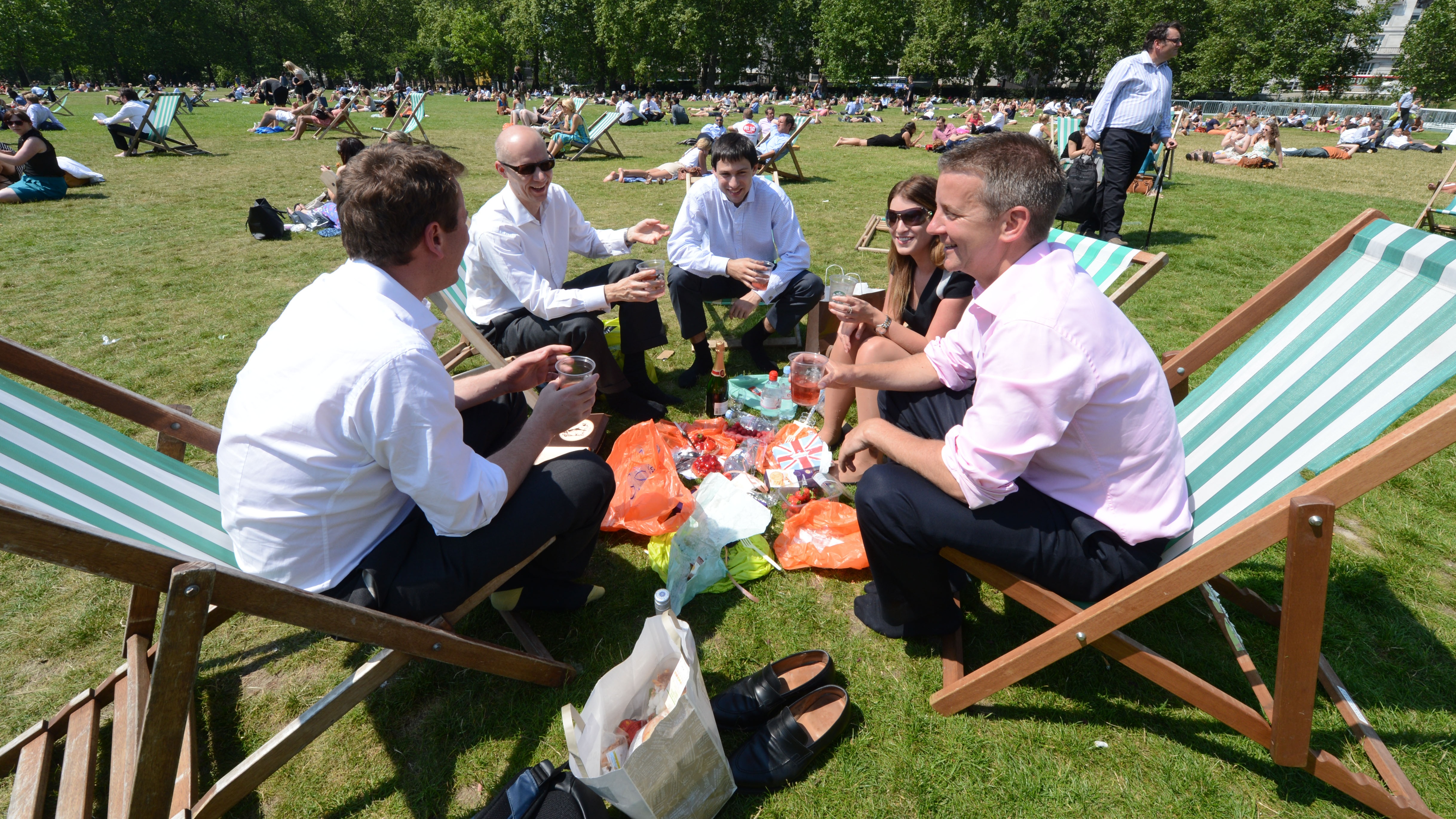Coronavirus: could ‘social bubbles’ ease the UK lockdown?
Government is considering expanding contact outside of households

A free daily email with the biggest news stories of the day – and the best features from TheWeek.com
You are now subscribed
Your newsletter sign-up was successful
The UK could allow people contact with a limited number of family and friends as part of easing the lockdown, Downing Street has hinted.
Boris Johnson’s official spokesman signalled the prime minister was open to the idea of so-called social bubbles, saying No. 10 was “very alive to the issue of social isolation and the need for mental wellbeing”.
What are “social bubbles”?
The Week
Escape your echo chamber. Get the facts behind the news, plus analysis from multiple perspectives.

Sign up for The Week's Free Newsletters
From our morning news briefing to a weekly Good News Newsletter, get the best of The Week delivered directly to your inbox.
From our morning news briefing to a weekly Good News Newsletter, get the best of The Week delivered directly to your inbox.
Social bubbles would allow people from one household to mix with a limited number of people from other households.
There would continue to be restrictions on who and what number of people each person would be allowed to mix with, and bubbles would need to be contained.
“If X can see Y and Z, can Y and Z see A? If they can, then the virus could still spread. If they could not, the scheme quickly encounters problems,” says The Times.
Forming bubbles might promote a degree of social awkwardness – “not unlike leaving that friend or relative off your wedding guest list”, says CNN - and are difficult to police.
A free daily email with the biggest news stories of the day – and the best features from TheWeek.com
But some sociologists see it as a sensible way to ease the burden of isolation, especially for those living alone.
–––––––––––––––––––––––––––––––For a round-up of the most important stories from around the world - and a concise, refreshing and balanced take on the week’s news agenda - try The Week magazine. Start your trial subscription today –––––––––––––––––––––––––––––––
How would they play a role in lockdown?
Speaking in the House of Lords, James Bethell, a health minister, suggested softening isolation to allow for social bubble mixing was actively under review, The Guardian reports.
“The question of isolation remains one for which we are reviewing our advice. We are in constant contact with other countries to learn more about best practice,” he said.
While most people are sticking to lockdown measures, the government is keen to address the fraying at the edges of compliance that emerged over the weekend. It believes that people being prevented from seeing close family is the aspect of lockdown that people are finding toughest.
Under the government’s social bubble suggestion, people would be allowed to combine their household with one or two others, up to a maximum of ten people.
Cautious early steps for the plan would likely see the vulnerable – the over-70s and those with existing health conditions – advised to keep isolating without mixing with other households.
Scotland’s First Minister Nicola Sturgeon told BBC Radio Scotland last week that the Scottish government was considering expanding the definition of “households” to allow small gatherings of people living apart.
Sturgeon said this would be part of “encouraging people who live alone to maybe match up with somebody else who is on their own, or a couple of other people to have almost kind of bubbles of people”, the BBC reports.
However, experts have warned that the government needs to more rigorously quarantine new cases of coronavirus at the point it moves to soften lockdown measures.
Jeremy Hunt, chair of the health select committee and a former health secretary, told the Guardian: “The key point about the success [of] South Korea and Taiwan is that it was as much a quarantining strategy as it was a contact tracing strategy, with the object to take out of circulation anyone who has Covid or is likely to have Covid.”
Stefan Flasche, an associate professor at the London School of Hygiene and Tropical Medicine, says it is too early to relax restrictions in the UK. But when it is safe to do so, extended social bubbles may be a key “coping mechanism” for the public while a vaccine is being developed.
“It’s not designed to solve the pandemic, but it will help the social component,” he told the BBC. "We will have the risk of Covid for a long time, so anything to keep society functioning would help.”
Asked on Wednesday whether the government was considering social bubbles, the prime minister’s spokesperson said: “There’s extensive work going on in government to look at the next phase of the coronavirus response and also talked about how we could relax measures in some areas and toughen them in others.
According to The Telegraph, they added: “We are also very alive to the issue of social isolation and the need for mental wellbeing, as people help us to deal with the spread of this pandemic.
“We will have to take decisions based on the scientific evidence and guided by the fact we are not going to do anything which could lead to the virus being able to spread exponentially again.”